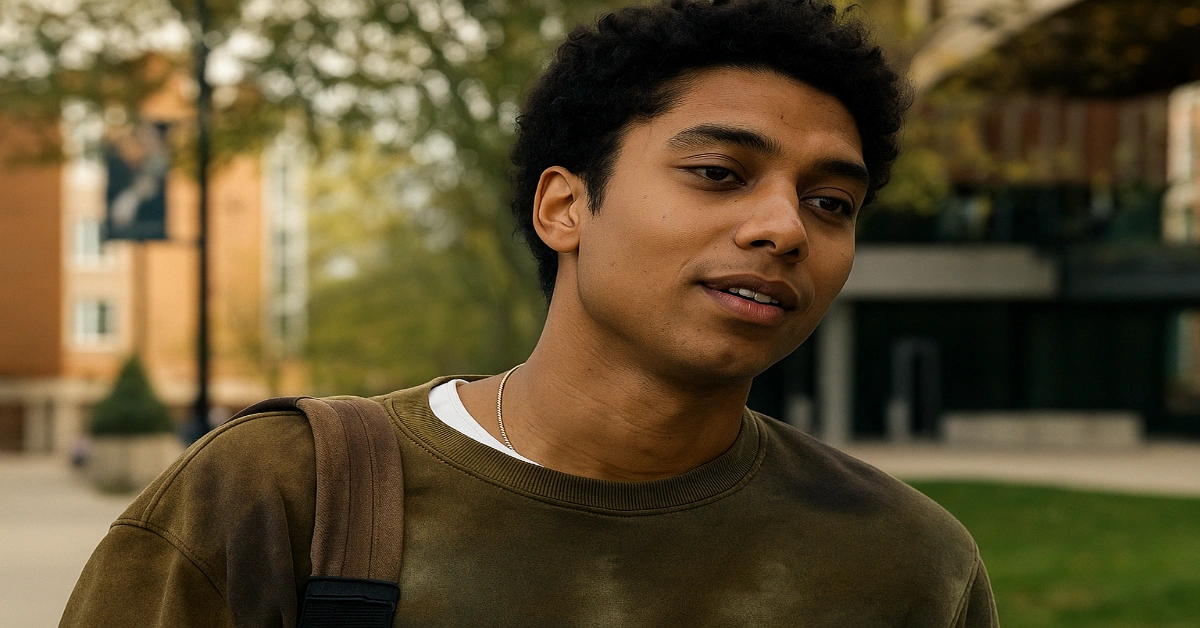Gen V Season 2 reshapes its narrative after the tragic loss of Chance Perdomo, turning an intended arc into an emotional tribute. The writers chose not to recast Andre and instead wove his absence and off-screen death into the season central conflicts.
Gen V Storyline and Andre Impact
Gen V expands the world of The Boys by shifting focus to Godolkin University, a training ground where young supes compete for top rankings and a chance to join Vought’s elite. The series blends dark satire with campus drama, exposing how power, corruption, and corporate control shape the next generation of superheroes.
Within this setting, Andre Anderson stood out as one of the most layered characters. As a metal-manipulating supe and the son of a famous hero, he carried the weight of legacy, friendship, and moral conflict. Andre was both a confidant and a conscience for the main group, bridging the gap between rebellious students and the system that created them. His storyline was pivotal to revealing hidden conspiracies at Godolkin, making his absence in Gen V Season 2 even more impactful.
Rewriting the Story Without Andre
Showrunners entered writing for Gen V Season 2 with several episodes already mapped out for Andre character — plans that had to be rethought after Chance Perdomo death. Rather than recasting, the production paused and reworked major beats so Andre absence could be handled with real grief, not a convenient plot pivot.
Rewriting meant shifting other characters’ arcs into new emotional territory. Characters who would have shared screen time with Andre instead carry the weight of his loss, and those shifts inform new motivations, alliances and a season-long sense of mourning that underpins the satire and violence the show is known for.
Portraying Andre Death
The writers opted for an off-screen explanation rather than an on-camera death — a choice that preserves the actor’s memory without dramatizing the real-life tragedy. Gen V Season 2 hints and reveals about Andre fate across early episodes, using other characters’ reactions and memory to make his loss tangible.
This approach lets the audience grieve alongside the cast: the show places emphasis on aftermath — funerary, emotional, and political — rather than recreating the accident itself. The result is a quieter but emotionally concentrated storytelling choice that turns absence into narrative fuel.
Join WhatsApp Channel For more Updates: PK Entertainment
Cast & Crew Response
Unified Respect: The team unanimously decided not to recast Andre, honoring Chance Perdomo’s memory.
Emotional Filming: Cast members described filming Season 2 as emotionally charged, with scenes written to reflect genuine grief.
Public Tributes: Several actors, including main cast members, posted heartfelt tributes to Perdomo on social media.
Showrunner’s Statement: Michele Fazekas explained that rewriting Andre’s arc was about respect, not convenience.
Maintaining Legacy: Writers and producers shaped new storylines to ensure Andre’s influence remains visible throughout Gen V Season 2.
Also Read: Jimmy Kimmel Live! Suspension Shocks Staff and Celebrity Guests
Why the Creators Refused to Recast
The team behind Gen V Season 2 decided against recasting Andre after Chance Perdomo’s passing. They felt no one could truly capture his presence or the emotional connection he built with viewers, and replacing him would have felt hollow.
Instead, they chose to weave Andre death into the story, turning it into a respectful tribute. This approach keeps Perdomo legacy alive while giving the season added authenticity and emotional weight.
What to Expect Next
By weaving Andre death into Gen V Season 2, the show blends its sharp satire with genuine human loss, creating a tonal shift that reshapes audience expectations. Early episodes use grief to deepen power struggles and humanize characters who might otherwise feel archetypal.
This creative decision also sets a precedent for genre TV on handling real-world losses — prioritizing respect, avoiding recasts, and crafting narratives that honor both the person and their performance. Early industry reactions view the rewrites as a thoughtful and artistically coherent response.




Join The Discussion